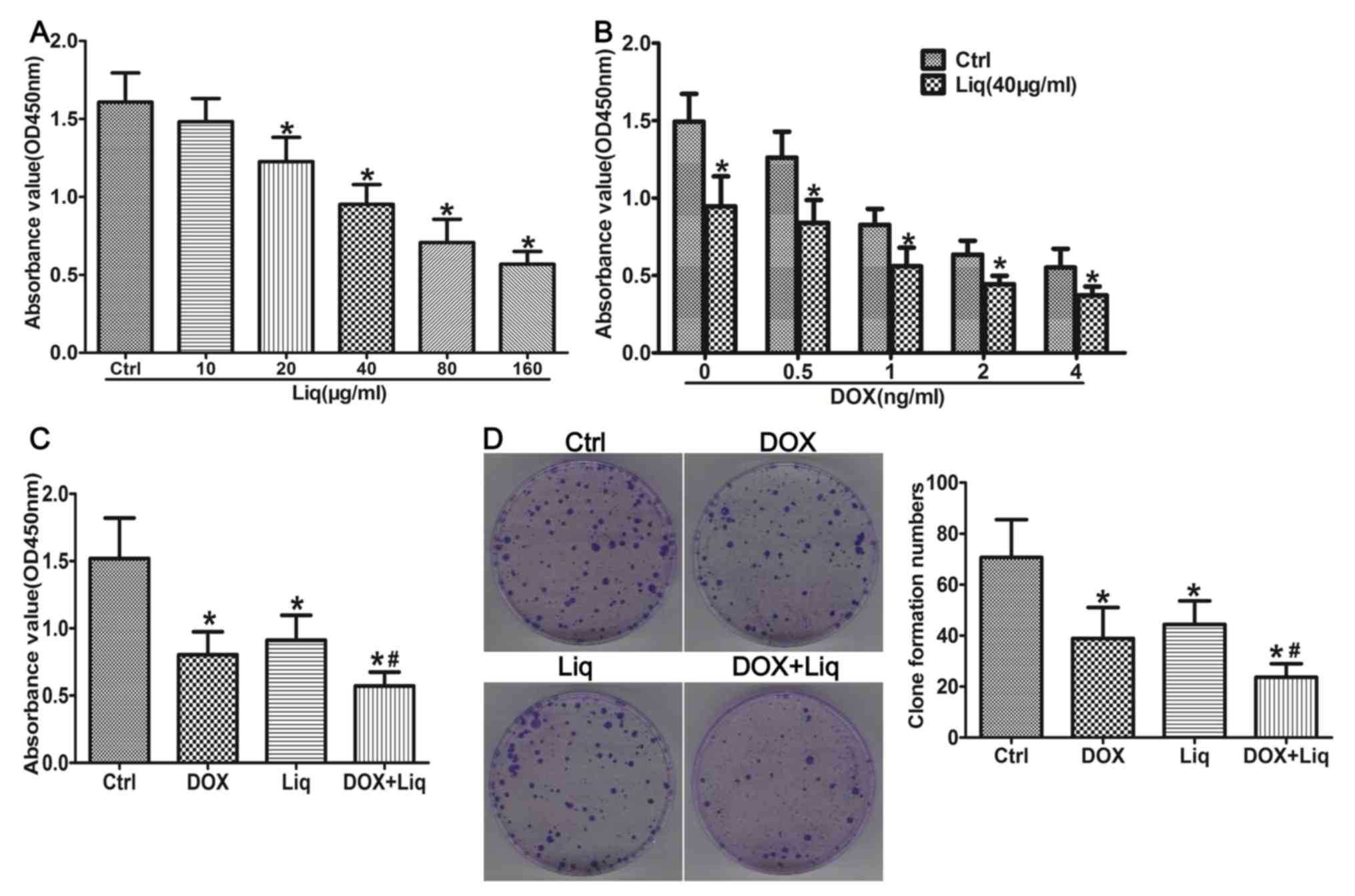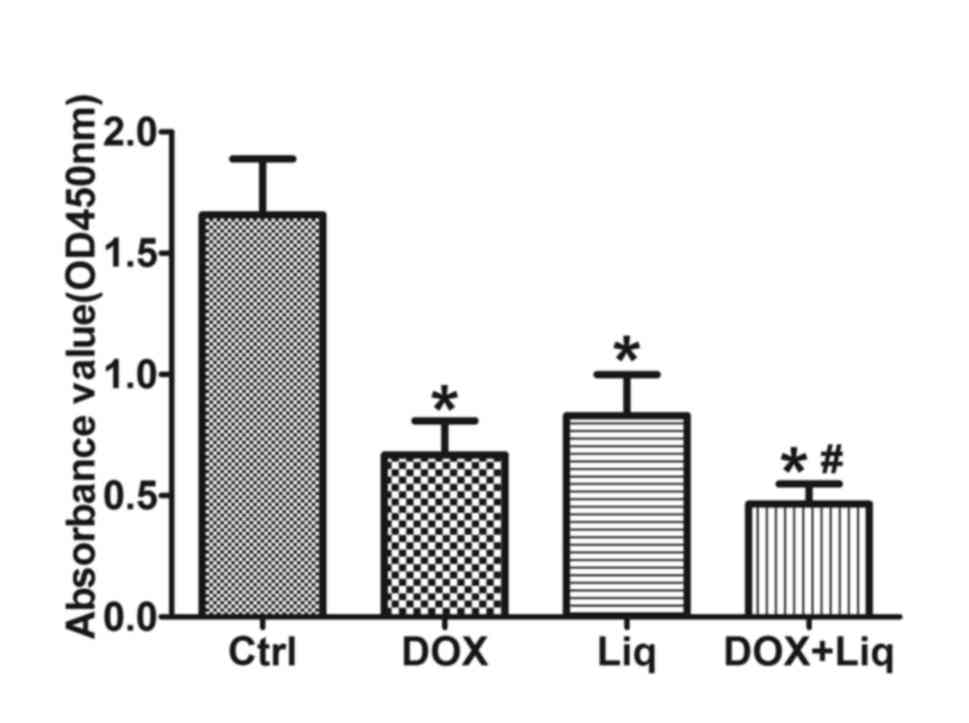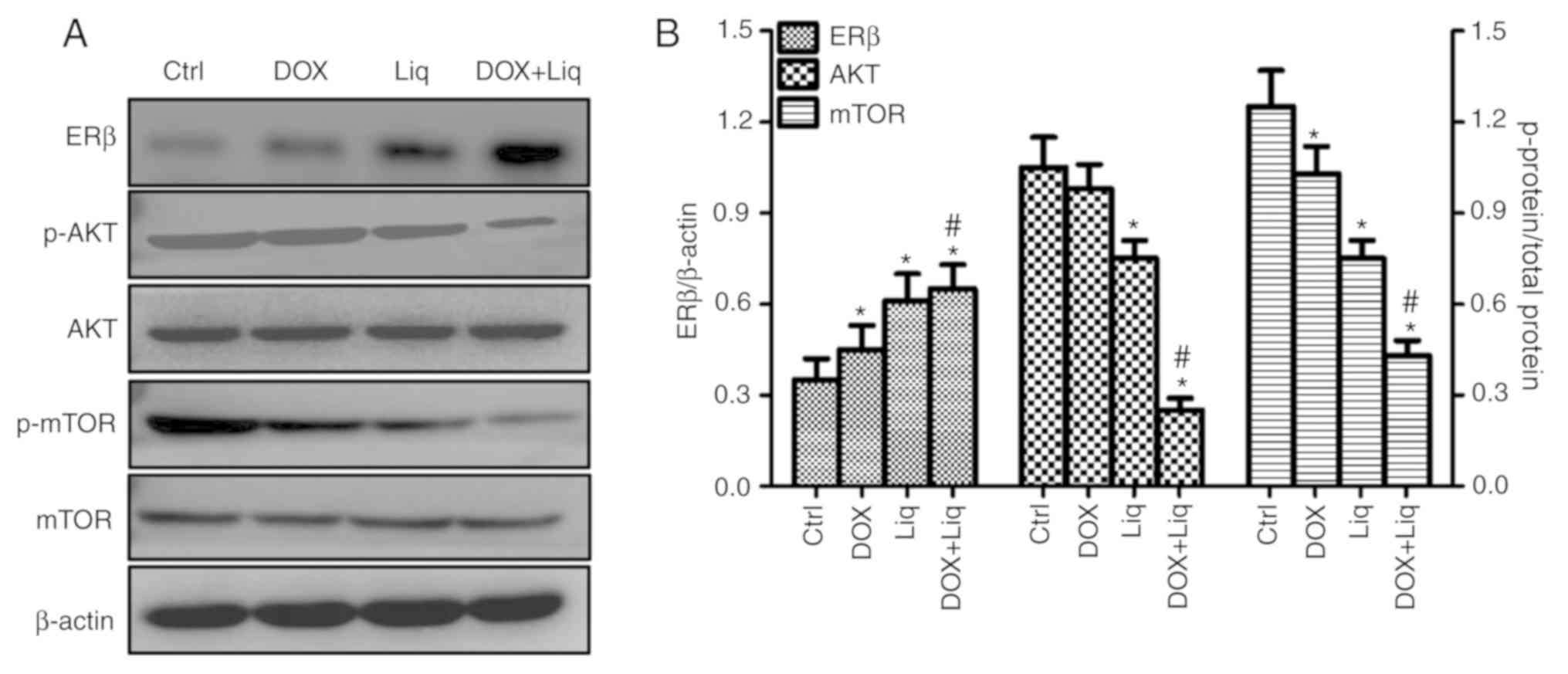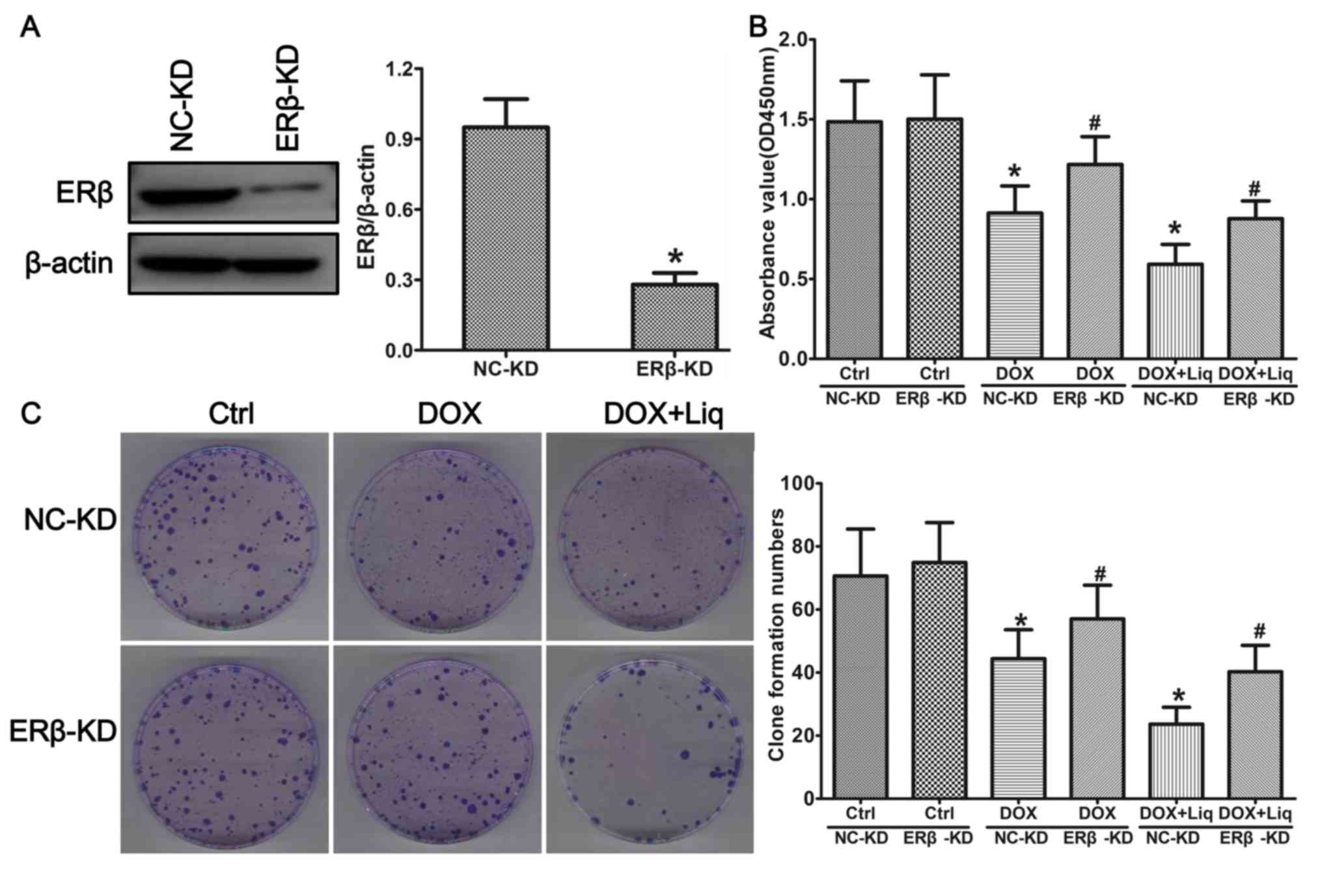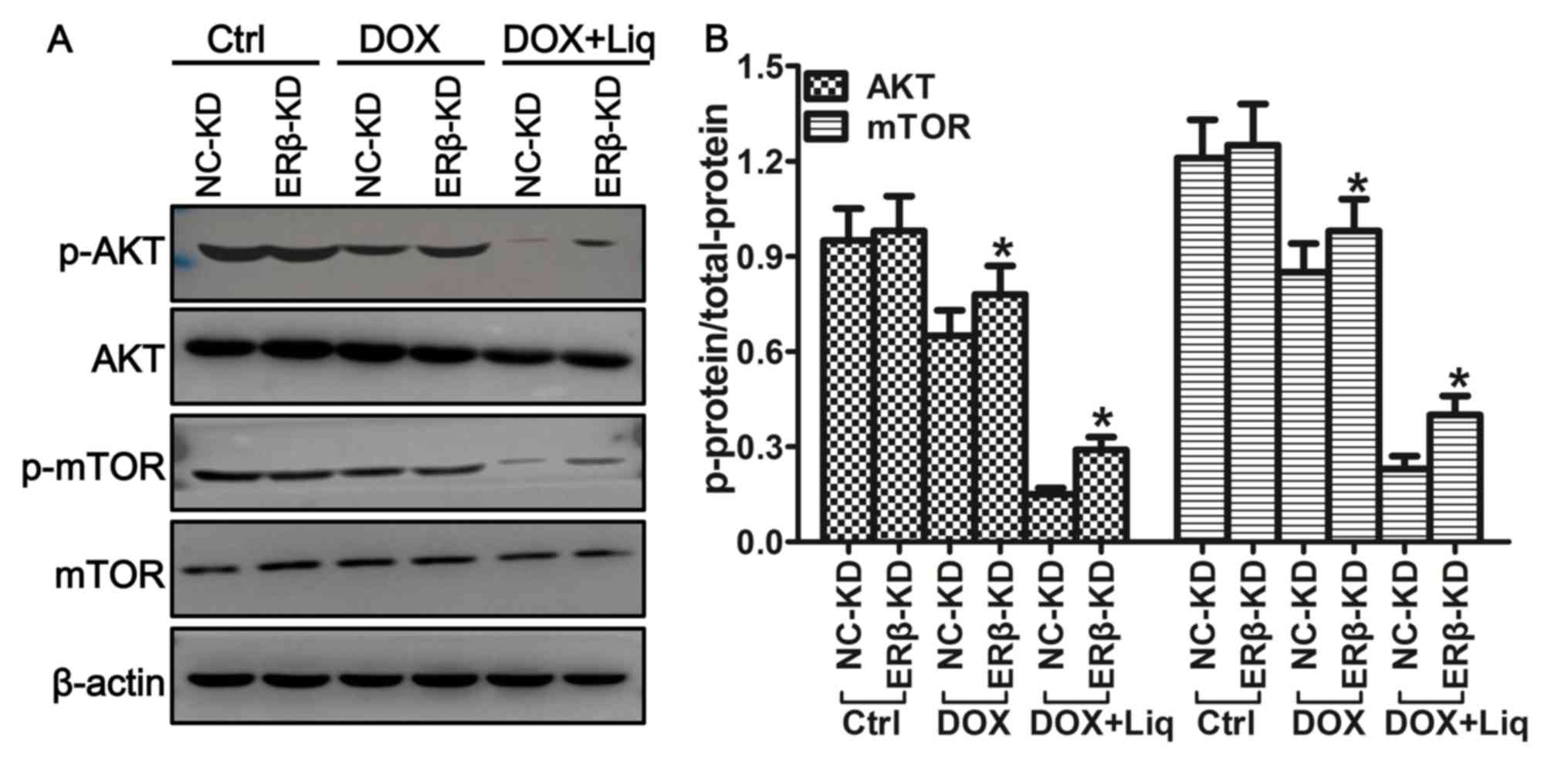|
1
|
Foulkes WD, Smith IE and Reis-Filho JS:
Triple-negative breast cancer. N Engl J Med. 363:1938–1948.
2010.PubMed/NCBI View Article : Google Scholar
|
|
2
|
Papa A, Caruso D, Tomao S, Rossi L,
Zaccarelli E and Tomao F: Triple-negative breast cancer:
Investigating potential molecular therapeutic target. Expert Opin
Ther Targets. 19:55–75. 2015.PubMed/NCBI View Article : Google Scholar
|
|
3
|
Oakman C, Viale G and Di Leo A: Management
of triple negative breast cancer. Breast. 19:312–321.
2010.PubMed/NCBI View Article : Google Scholar
|
|
4
|
Foulkes WD, Smith IE and Reis JS:
Triple-negative breast cancer. New Engl J Med. 363:1938–1948.
2010.PubMed/NCBI View Article : Google Scholar
|
|
5
|
Dent R, Trudeau M, Pritchard KI, Hanna WM,
Kahn HK, Sawka CA, Lickley LA, Rawlinson E, Sun P and Narod SA:
Triple-negative breast cancer: Clinical features and patterns of
recurrence. Clin Cancer Res. 13:4429–4434. 2007.PubMed/NCBI View Article : Google Scholar
|
|
6
|
Imamov O, Lopatkin NA and Gustafsson JA:
Estrogen receptor beta in prostate cancer. N Engl J Med.
351:2773–2774. 2004.PubMed/NCBI View Article : Google Scholar
|
|
7
|
Kuiper GG, Enmark E, Pelto-Huikko M,
Nilsson S and Gustafsson JA: Cloning of a novel receptor expressed
in rat prostate and ovary. Proc Natl Acad Sci USA. 93:5925–5930.
1996.PubMed/NCBI View Article : Google Scholar
|
|
8
|
Nilsson S and Gustafsson JA: Estrogen
receptors: Therapies targeted to receptor subtypes. Clin Pharmacol
Ther. 89:44–55. 2011.PubMed/NCBI View Article : Google Scholar
|
|
9
|
Chen JQ and Russo J: ER alpha-negative and
triple negative breast cancer: Molecular features and potential
therapeutic approaches. Biochim Biophys Acta. 1796:162–175.
2009.PubMed/NCBI View Article : Google Scholar
|
|
10
|
Sakamoto G and Honma N: Estrogen receptor
beta status influences clinical outcome of triple negative breast
cancer. Breast Cancer. 16:281–282. 2009.PubMed/NCBI View Article : Google Scholar
|
|
11
|
Wang J, Zhang C, Chen K, Tang H, Tang J,
Song C and Xie X: ERβ1 inversely correlates with PTEN/PI3K/AKT
pathway and predicts a favorable prognosis in triple-negative
breast cancer. Breast Cancer Res Treat. 152:255–269.
2015.PubMed/NCBI View Article : Google Scholar
|
|
12
|
von Minckwitz G, Raab G, Caputo A, Schütte
M, Hilfrich J, Blohmer JU, Gerber B, Costa SD, Merkle E, Eidtmann
H, et al: Doxorubicin with cyclophosphamide followed by docetaxel
every 21 days compared with doxorubicin and docetaxel every 14 days
as preoperative treatment in operable breast cancer: The GEPARDUO
study of the German Breast Group. J Clin Oncol. 23:2676–2685.
2005.PubMed/NCBI View Article : Google Scholar
|
|
13
|
Gasparini G, Dal Fior S, Panizzoni GA,
Favretto S and Pozza F: Weekly epirubicin versus doxorubicin as
second line therapy in advanced breast cancer. A randomized
clinical trial. Am J Clin Oncol. 14:38–44. 1991.PubMed/NCBI View Article : Google Scholar
|
|
14
|
Momparler RL, Karon M, Siegel SE and Avila
F: Effect of adriamycin on DNA, RNA, and protein synthesis in
cell-free systems and intact cells. Cancer Res. 36:2891–2895.
1976.PubMed/NCBI
|
|
15
|
Fornari FA, Randolph JK, Yalowich JC,
Ritke MK and Gewirtz DA: Interference by doxorubicin with DNA
unwinding in MCF-7 breast tumor cells. Mol Pharmacol. 45:649–656.
1994.PubMed/NCBI
|
|
16
|
Tewey KM, Rowe TC, Yang L, Halligan BD and
Liu LF: Adriamycin-induced DNA damage mediated by mammalian DNA
topoisomerase II. Science. 226:466–468. 1984.PubMed/NCBI View Article : Google Scholar
|
|
17
|
Mamounas EP, Bryant J, Lembersky B,
Fehrenbacher L, Sedlacek SM, Fisher B, Wickerham DL, Yothers G,
Soran A and Wolmark N: Paclitaxel after doxorubicin plus
cyclophosphamide as adjuvant chemotherapy for node-positive breast
cancer: Results from NSABP B-28. J Clin Oncol. 23:3686–3696.
2005.PubMed/NCBI View Article : Google Scholar
|
|
18
|
Fan Y, Li M, Ma K, Hu Y, Jing J, Shi Y, Li
E and Dong D: Dual-target MDM2/MDMX inhibitor increases the
sensitization of doxorubicin and inhibits migration and invasion
abilities of triple-negative breast cancer cells through activation
of TAB1/TAK1/p38 MAPK pathway. Cancer Biol Ther. 5:617–632.
2019.PubMed/NCBI View Article : Google Scholar
|
|
19
|
Shanle EK, Hawse JR and Xu W: Generation
of stable reporter breast cancer cell lines for the identification
of ER subtype selective ligands. Biochem Pharmacol. 82:1940–1949.
2011.PubMed/NCBI View Article : Google Scholar
|
|
20
|
Reese JM, Suman VJ, Subramaniam M, Wu X,
Negron V, Gingery A, Pitel KS, Shah SS, Cunliffe HE, McCullough AE,
et al: ERβ1: Characterization, prognosis, and evaluation of
treatment strategies in ERα-positive and -negative breast cancer.
BMC Cancer. 14(749)2014.PubMed/NCBI View Article : Google Scholar
|
|
21
|
Hinsche O, Girgert R, Emons G and Gründker
C: Estrogen receptor β selective agonists reduce invasiveness of
triple-negative breast cancer cells. Int J Oncol. 46:878–884.
2015.PubMed/NCBI View Article : Google Scholar
|
|
22
|
Reese JM, Bruinsma ES, Monroe DG, Negron
V, Suman VJ, Ingle JN, Goetz MP and Hawse JR: ERβ inhibits cyclin
dependent kinases 1 and 7 in triple negative breast cancer.
Oncotarget. 8:96506–96521. 2017.PubMed/NCBI View Article : Google Scholar
|
|
23
|
Thomas C, Rajapaksa G, Nikolos F, Hao R,
Katchy A, McCollum CW, Bondesson M, Quinlan P, Thompson A,
Krishnamurthy S, et al: ERbeta1 represses basal-like breast cancer
epithelial to mesenchymal transition by destabilizing EGFR. Breast
Cancer Res. 14(R148)2012.PubMed/NCBI View
Article : Google Scholar
|
|
24
|
Shanle EK, Zhao Z, Hawse J, Wisinski K,
Keles S, Yuan M and Xu W: Research resource: Global identification
of estrogen receptor β target genes in triple negative breast
cancer cells. Mol Endocrinol. 27:1762–1775. 2013.PubMed/NCBI View Article : Google Scholar
|
|
25
|
Liu X, Wang L, Chen J, Ling Q, Wang H, Li
S, Li L, Yang S, Xia M and Jing L: Estrogen receptor β agonist
enhances temozolomide sensitivity of glioma cells by inhibiting
PI3K/AKT/mTOR pathway. Mol Med Rep. 11:1516–1522. 2015.PubMed/NCBI View Article : Google Scholar
|
|
26
|
Khan KH, Yap TA, Yan L and Cunningham D:
Targeting the PI3K-AKT-mTOR signaling network in cancer. Chin J
Cancer. 32:253–265. 2013.PubMed/NCBI View Article : Google Scholar
|
|
27
|
Bitting RL and Armstrong AJ: Targeting the
PI3K/Akt/mTOR pathway in castration-resistant prostate cancer.
Endocr Relat Cancer. 20:R83–R99. 2013.PubMed/NCBI View Article : Google Scholar
|
|
28
|
Martelli AM, Evangelisti C, Chiarini F and
McCubrey JA: The phosphate-dylinositol 3-kinase/Akt/mTOR signaling
network as a therapeutic target in acute myelogenous leukemia
patients. Oncotarget. 1:89–103. 2010.PubMed/NCBI View Article : Google Scholar
|
|
29
|
Toulany M, Lee KJ, Fattah KR, Lin YF,
Fehrenbacher B, Schaller M, Chen BP, Chen DJ and Rodemann HP: Akt
promotes post-irra-diation survival of human tumor cells through
initiation, progression, and termination of DNA-PKcs-dependent DNA
double-strand break repair. Mol Cancer Res. 10:945–957.
2012.PubMed/NCBI View Article : Google Scholar
|
|
30
|
Costa RLB, Han HS and Gradishar WJ:
Targeting the PI3K/AKT/mTOR pathway in triple-negative breast
cancer: A review. Breast Cancer Res Treat. 169:397–406.
2018.PubMed/NCBI View Article : Google Scholar
|
|
31
|
Park IH, Kong SY, Kwon Y, Kim MK, Sim SH,
Joo J and Lee KS: Phase I/II clinical trial of everolimus combined
with gemcitabine/cisplatin for metastatic triple-negative breast
cancer. J Cancer. 9:1145–1151. 2018.PubMed/NCBI View Article : Google Scholar
|
|
32
|
Chock KL, Allison JM, Shimizu Y and
ElShamy WM: BRCA1-IRIS overexpression promotes cisplatin resistance
in ovarian cancer cells. Cancer Res. 70:8782–8791. 2010.PubMed/NCBI View Article : Google Scholar
|
|
33
|
O'Brien NA, Browne BC, Chow L, Wang Y,
Ginther C, Arboleda J, Duffy MJ, Crown J, O'Donovan N and Slamon
DJ: Activated phosphoinositide 3-kinase/AKT signaling confers
resistance to trastuzumab but not lapatinib. Mol Cancer Ther.
9:1489–1502. 2010.PubMed/NCBI View Article : Google Scholar
|
|
34
|
Xu J and Tian D: Hematologic toxicities
associated with mTOR inhibitors temsirolimus and everolimus in
cancer patients: A systematic review and meta-analysis. Curr Med
Res Opin. 30:67–74. 2014.PubMed/NCBI View Article : Google Scholar
|
|
35
|
Vivanco I and Sawyers CL: The
phosphatidylinositol 3-Kinase AKT pathway in human cancer. Nat Rev
Cancer. 2:489–501. 2002.PubMed/NCBI View
Article : Google Scholar
|
|
36
|
Hamilton N, Márquez-Garbán D, Mah V,
Fernando G, Elshimali Y, Garbán H, Elashoff D, Vadgama J, Goodglick
L and Pietras R: Biologic roles of estrogen receptor-β and
insulin-like growth factor-2 in triple-negative breast cancer.
Biomed Res Int. 2015(925703)2015.PubMed/NCBI View Article : Google Scholar
|















